Hồ Chí Minh is Vietnam’s founding father and his story has fascinated me since I first opened one of his many biographies during an early trip to Vietnam. Unlike the dozens of “founding fathers” of the American Revolution, Vietnam’s origin narrative coalesced around one man. Although some may find it difficult to completely buy into the near-saint status of the official narrative, there are many reasons to respect him.
I admire that he put the mission of national independence over ideology. Early in the struggle for independence, he seemed open to discussion with the West. As I discussed in an earlier article: Why Vietnam embraced religion while other communist countries didn't? He chose to put the religious needs of his people over Marxist ideology, possibly causing political tension with other Communist states. He took a pragmatic approach to politics, without holding grudges against countries with whom Vietnam was at war only a short time earlier. This left a legacy that allowed the Vietnamese people to quickly move beyond past grievances and look to the future with countries that had previously wronged them.
I had questions:
What were the motivating factors which drew him to communism?
Why, when the ideological conflict between communism and nationalism sprung up, did he always chose nationalism?
What were his relationships with the Soviet Union and the Chinese Communist Party?
What caused allegiance to the Soviets during their ideological civil war with the Chinese from the 1950’s to 1991?
Before getting into the article, I will address a few issues which may come up as you read. The Vietnamese name is ordered differently from Western names, with the family name at the beginning and the given name at the end. This was not true in the case of Hồ Chí Minh, who used the Western order. I chose to identify people by their first names because there are relatively few Vietnamese family names, and this can become confusing when dealing with several individuals with the same family name. Also, Vietnamese have a habit of taking on multiple names over their lifetimes. There is often a legal name, a name for home, a name for school, a Buddhist name, etc. Hồ Chí Minh took this to an extreme and constantly changed his name. Although I wait until a later article to explain the origin of the name Hồ Chí Minh, I use it here because it is the most common name people associate with him.
A quick note: I mostly use exclusively Vietnamese sources for details of Hồ Chí Minh’s life. As with other founding father narratives, they can sometimes vary from real life. I am reminded of the story of George Washington cutting down a cherry tree in an object lesson about his truthfulness. That story probably never happened. Sometimes the Hồ Chí Minh’s story can seem that way too. I choose to tell it mostly as told in the Vietnamese narrative, since it is their story to tell, unless there is staggering proof to the contrary.
Early Family Life
Uncle Hồ spent his early years in his father's village, Làng Sen in Kim Liên; a region known for its poverty and anti-French activities. Hồ Chí Minh was born Nguyễn Sinh Cung on May 19, 1890, in Nghệ An province, Annam Protectorate, Indochina. His father was Nguyễn Sinh Sắc and his mother, Hoàng Thị Loan. Other birth years have been sited, but these dates do not line up with school attendance records, making 1890 the official birth year. Cung (Hồ) had three siblings: an older sister, Bạch Liên (Nguyễn Thị Thanh), who worked as a clerk in the French Army; an older brother, Nguyễn Sinh Khiêm (Nguyễn Tất Đạt), a geomancer and traditional herbalist/physician; and a younger brother, Nguyễn Sinh Nhuận (Nguyễn Sinh Xin).
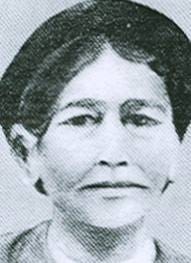
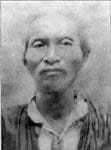
When Hồ was young, his father, Sắc, attended school to complete qualifications necessary to become an administrator (a Mandarin) of the Vietnamese monarchy. He went away to school to prepare for the bachelor’s degree (Confucian Cử Nhân) exam, the first degree necessary to work for the Vietnamese monarchy as a government administrator. While Sắc was away at school, Loan gave birth to Sắc’s fourth child, Nhuận. Unfortunately, Loan died shortly after giving birth. A few months later, baby Nhuận was sent to his mother’s hometown. He died in 1901.
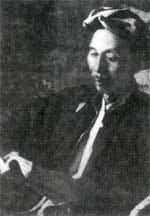
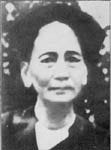
Sắc succeeded in passing the bachelor’s degree examination in 1894. In 1901, he secured a higher degree (Phó bảng) to become a government administrator for the emperor and was appointed to an administrative position in the Binh Khe district of Qui Nhơn. This was an important port city, located about halfway down the coast between Hội An and Nha Trang in the French Indochina protectorate of Annam. The Vietnamese Emperor had control over the northern protectorates of Annam and Tonkin, while Cochinchina was a colony governed directly by the French.
This YouTube Video does a great job of explaining the Chinese examination system, which the Vietnamese examination system is based upon.
Shortly after beginning his career, Sắc lost his administrator position for excessive use of power after a landlord, whom he had ordered to be beaten with 102 strikes of the cane, died shortly after. Sắc was still eligible to serve in the imperial bureaucracy, but he declined because it meant serving the French.
Hồ lived with his father, who taught Hồ until 1895, when he sent him to Huế for advanced studies with a variety of teachers. He swiftly became proficient in Chữ Hán, the Vietnamese name for the Chinese writing system, which is essential for the serious study of Confucianism, and also refined his colloquial Vietnamese writing skills. In accordance with Confucian tradition, at the age of 10, his father bestowed upon him a new name, Nguyễn Tất Thành.
Hồ received a French education at the French-Vietnamese Đông Ba school where he was among the top ten students, allowing him to receive his secondary education at Collège Quốc học in Huế, Annam. I fortuitously and accidently visited this campus while walking along the Perfume River. It is beautiful, with buildings reminiscent of what one might expect to see in a European boarding school. The campus courtyard is filled with trees, providing a nice break from the sun. Most of the future state leaders spent their formative years at this school, including Hồ disciples Phạm Văn Đồng and Võ Nguyên Giáp, along with political rival, Ngô Đình Diệm, future President of South Vietnam.
Phan Bội Châu
In order to understand Hồ’s motivations, we really need to take a step back and look at his family and influences. Phan Bội Châu (1867-1940) was a Vietnamese revolutionary fighting the French.
In 1897, Châu succeeded in passing the higher rank of the administrator exam, making him eligible for a role serving the emperor. Unfortunately, his friend Trần Văn Lương secretly placed some books in his bag, leading to accusations of concealing written materials in his clothing. Because of this, he was sentenced to life imprisonment and was barred for life from taking the exam. For reasons unknown, Châu was allowed out of prison and later taught in Huế, where he gained favor from the Manchurians who then persuaded Emperor Thành Thái to allow Châu to retake the exam. Châu again passed the exam in 1900 with the highest score of all that year’s examinees.
Despite Châu’s high education, he became a revolutionary and traveled to China and Japan to ask for help with Vietnamese independence. In Japan, Châu met with two leaders of the Japanese Progressive Party, Ōkuma Shigenobu and Inukai Tsuyoshi, although their respective Wikipedia pages show them as members of The Constitutional Party and The True Constitutional Party, which were made up of Liberals and Progressives following the breakup of both parties in 1898. They advised Châu to motivate the country’s youth to pursue education abroad, so they may return and contribute to the nation's future development.
In 1905, Châu went to Hà Tĩnh to establish Duy Tân assembly with the mission of sending Vietnamese students to study abroad. This evolved into the Đông Du Movement. Within three years, there were 200 students studying in Japan.
By 1908, the French got word of the revolutionary nature of the movement and signed a treaty with the Japanese calling for Japan to expel these students. The following year, the leaders of the movement, Châu and Kỳ Ngoại hầu, also known as Cường Để, and a member of the Nguyễn royal family, were also expelled from Japan. Over the next few years, Châu would send his students to Siam (now Thailand) and Laos to escape persecution by the French. Châu was arrested in China, and with the aid of a Bejing friend, avoided deportation. Unfortunately, he languished in a Guangdong prison until 1917.
In 1922, Châu followed the lead of Sun Yat-sen's Chinese Nationalist Party and created the Vietnamese Nationalist Party. In 1925, the French kidnapped Châu in Shanghai and brought him to Vietnam, where he lived out his days in Huế under house arrest until his death in 1940.
Phan Bội Châu’s relationship with the Nguyễn Family
English Wikipedia mentions Châu was a long-time friend of Hồ Chí Minh’s father, but this relationship is explored more in-depth when investigating Vietnamese sources, which state Châu had close ties to each member of the Nguyễn family who were each politically active partisans against the French.
Nguyễn Thị Thanh was Hồ Chí Minh’s older sister and an active partisan in the struggle against the French. In 1918, Thanh, in collaboration with her younger brother Nguyễn Sinh Khiêm, orchestrated the theft of firearms from the barracks of the French soldiers in the city of Vinh. Thanh was discovered and sent to trial. Her sentence was 100 lashes and 9 years of hard labor. According to writer Son Tung, Thanh was tortured by being forced to sit on a red-hot copper tray which “deformed her body” and “twisted her soul”, leaving her unable to ever get married. On December 2, 1918, they sent her to Quang Ngai prison. Evidently, the head of the Central Vietnam secret police, Phạm Bá Phổ, took a liking to Thanh and allowed her to live in his house. In 1922, Phổ was promoted to the position of Deputy Minister of Justice by the Huế court. When Phổ moved to Huế, he took Thanh along with his family. It appears she lived out her days there until her death in 1954.
Nguyễn Sinh Khiêm, the second child, participated in patriotic activities against French colonialism and spent much of his youth in prison. Little is known of his revolutionary activities, except for the gun theft that led to his sister’s incarceration.
Khiêm married Nguyễn Thị Giáng (1897-1960) after she and her first husband became sick. Khiêm worked as a physician and geomancer and met Giáng and her husband when they were his patients. He was able to cure her, but not her husband. Her husband died, leaving her with a toddler son.
After the morning period for Giáng’s husband ended, Khiêm and Giáng married and had three children, all of whom died very young. Giang's stepchild, Hà Hữu Thừa, became a Colonel in the Vietnamese People's Army.
In 1940, Khiêm went to Vinh to organize a performance of the play Trưng Nữ Vương composed by Châu about the Trưng sisters, who formed the first rebellion against the Chinese in 40 A.D., which I briefly wrote about in the article 2,500 years of Vietnamese History in a few minutes. Obviously, this play was meant to spark revolutionary feelings. Khiêm was imprisoned for several months on suspicion of gathering young people for an Anti-Colonial movement.
Khiêm learned that Hồ Chí Minh was actually his brother after the 1945 August Revolution that led to the Vietnamese Declaration of Independence. Khiêm planned a trip to visit Hồ the following year with his stepson and the grandson of a family (revolutionary) friend. Evidently, Khiêm needed to return to his home in Huế for the new year (and participate in some revolutionary activities). Khiêm died in 1950.
The Travels of Hồ Chí Minh
In 1910, Hồ began teaching at Dục Thanh School, which was part of the revolutionary Liên Thành Association, and shared similar origins to the Duy Tân association. He quit teaching the following year to move to Saigon and attend the Bá Nghệ vocational school for marine workers.
After only three months in Saigon, Hồ needed to leave Vietnam. I have heard some sources say the French were suspicious of revolutionary activity. Another source says Hồ was linked to a murder. Most agreed that he wanted to get to France to learn about the French political system and make contacts that might later aid his cause.
Hồ went to the Messageries Maritimes docks in Saigon, in what is now District 4 (across the river from District 1). It is now the site of the Hồ Chí Minh Museum and where I learned much of the information in this article.
Hồ used the name Văn Ba to secure a job as a kitchen assistant on the French merchant steamer Amiral de Latouche-Tréville and set sail for France on June 5, 1911. They docked in Marseille, France, on July 5. While in Marseille, he wrote a letter to the President of France, seeking entry into the École Coloniale, an institution dedicated to training administrative personnel for the colonial administration, with the aspiration of "helping France." His application was declined and redirected to the Chinese Embassy in Huế. As a result, he chose to continue travelling the world, working aboard ships and exploring various countries from 1911 to 1917. The previously mentioned Hồ Chí Minh Museum has maps detailing his voyages, if you are interested.
Documentary proof of his voyages is scant, as Hồ often used aliases in his early life. From 1912 to 1913, he is said to have resided in Harlem, New York as well as Boston, USA. While in Boston, he claimed to have worked as a baker at the Parker House Hotel. In 1913, Hồ worked as a pastry chef on the Newhaven–Dieppe ferry route, and is reported to have lived in the United Kingdom from then until 1917. During that time, he trained as a pastry chef under Auguste Escoffier at the Carlton Hotel in Haymarket, Westminster, as confirmed by a blue plaque on the wall where the Carlton Hotel once stood.
From 1917 to 1923, Hồ lived in France and became politically active in the Vietnamese independence movement. In Paris, he joined the Groupe des Patriotes Annamites (The Group of Vietnamese Patriots) and published newspaper articles advocating for Vietnamese independence under the pseudonym Nguyễn Ái Quốc ("Nguyễn the Patriot"). The group petitioned French Prime Minister Georges Clemenceau and United States President Woodrow Wilson for recognition of the civil rights of the Vietnamese people in French Indochina as well as the end of French colonial rule in Vietnam while these leaders met at the Versailles peace talks in June 1919. The petitions were ignored.
Some suggest that this was a crucial moment when Hồ could have been persuaded to adopt a pro-American position. It is clear, however, that Hồ was already a committed socialist by this point. In February 1919, Hồ joined the French Socialist Party and delivered pro-Socialist speeches. By 1920, the French Indochinese government had already flagged Hồ as a political dissident and created a listing of his aliases, residences and family information. In December 1920, he became the Indochinese delegate to the French Socialist Party and one of the founders of the French Communist Party. He broke away from the Socialist Party after only a year, stating the “Delegates of the Third International [Communists] promised to help oppressed colonial peoples regain their freedom and independence. Members of the Second International [Socialists] do not say a word about the fate of the colonies.”
Journal articles and short stories Hồ wrote for his Vietnamese nationalist group caught the attention of Soviet agents working in France. They saw to it that Hồ was invited to Moscow to begin formal training in Marxism. Over the next couple decades, he was sent around the world several times in service to the Communist movement before finally gaining an opportunity, along with his disciples, to pursue their primary goal of freeing Vietnam from French colonialism.
Hồ Chí Minh led an action-packed life which seems perfectly suited to make a great movie, with plenty of action and political intrigue. Over the next few weeks, you will see three additional articles that continue to tell the story of Hồ Chí Minh. The articles will discuss Hồ Chí Minh’s time in the Soviet Union, his revolutionary activities in China, and an international manhunt resulting in multiple arrests which ultimately led to faking his death.
Stay Tuned!
Please like or comment to show me you enjoyed the article. Your feedback helps me decide future topics to write about.

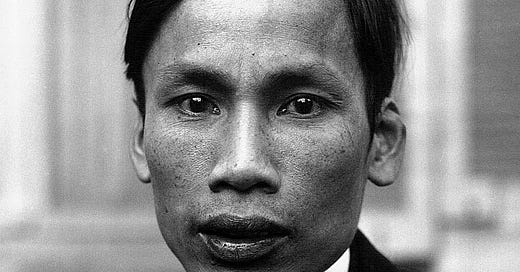


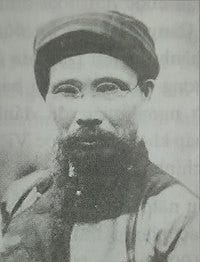
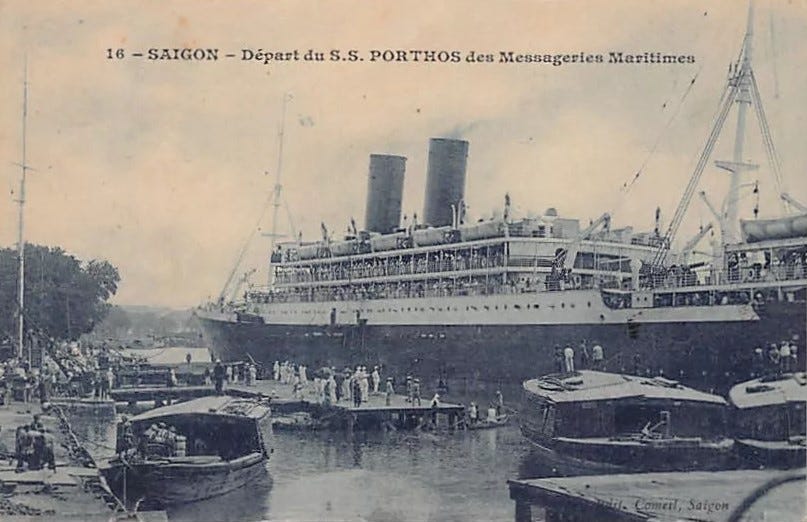
Back in May there was an exhibition at the Southern Women's Museum featuring a stamp collector's original collection of stamps and postcards, there were some really interesting ones of HCM in his prime. I have pics, but it seems I can't share them in the comments section...
Crikey, he sure was a busy boy! All of the things being reported as to what he did in his first 30 years, most wouldn’t achieve in their entire life. And as you say there is more to come.